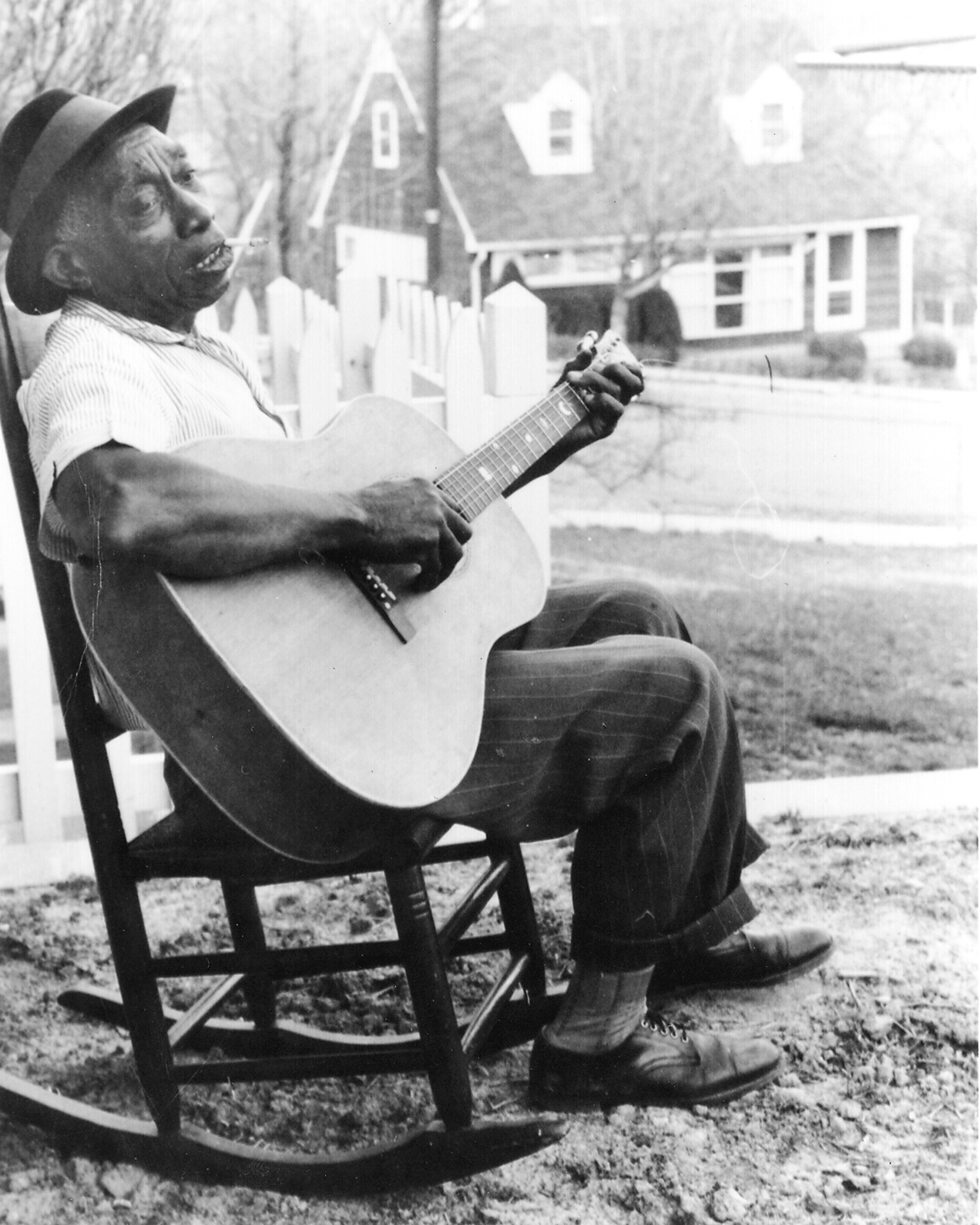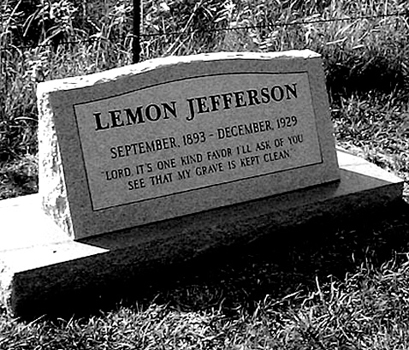
Set Three: Songs; Disc Two; Track Ten: "Spike Driver Blues" performed by Mississippi John Hurt. "Vocal solo with guitar." Recorded in New York on December 28, 1928. Original issue Okeh 8692 (W401488).
For biographical information on Mississippi John Hurt, see the entry for "Frankie."
For the ballad of John Henry and information on the historical John Henry, see the entry for "Gonna Die With My Hammer In My Hand."
Take this hammer and carry it to my captain. Tell him I'm gone.
Tell him I'm gone. Tell him I'm gone.
Take this hammer and carry it to my captain. Tell him I'm gone.
Just tell him I'm gone. I'm sure is gone.
This is the hammer that killed John Henry, but it won't kill me.
But it won't kill me. But it won't kill me.
This is the hammer that killed John Henry, but it won't kill me.
But it won't kill me. Ain't gonna kill me.
It's a long ways from east Colorado, honey, to my home.
Honey, to my home. Honey, to my home.
It's a long ways to east Colorado, honey, to my home.
Honey, to my home. That's where I'm gone.
John Henry he left his hammer layin' side the road.
Layin' side the road. Layin' side the road.
John Henry he left his hammer all over in rain.
All over in rain. That's why I'm gone.
John Henry was a steel drivin' boy but he went down.
But he went down. But he went down.
John Henry was a steel drivin' boy but he went down.
But he went down. That's why I'm gone.
"Spike Driver Blues" is the third of five work songs in a row. "Spike Driver Blues" is a song of protest. The worker in this song is throwing his hammer down and leaving the exhausting and dangerous work of driving steel spikes with a hammer (often between nine and twelve pounds). This song makes frequent references to the folkloric figure of John Henry, whose story is told is greater detail in the entry for the Williamson Brothers and Curry's recording of "Gonna Die With My Hammer In My Hand" on the "Ballads" volume of the Anthology. Here, Henry is invoked - not as a hero who raced the steam drill and won - but as a workingman's martyr. The speaker in this song has no interest in dying with his hammer in his hand. He's going home.
Work songs were often sung by convicts toiling in labor camps, so the fantasy of presenting the captain with their hammers and going home would be very appealing. Even when the workers were not actual convicts, many were simply prisoners of circumstance, lacking the economic independence to quit their back-breaking work.
As in the case of Hurt's performance of "Frankie," "Spike Driver Blues" is performed in a gentle, almost conversational tone. The guitar is beautifully played. This stands in stark contrast with the two raucous Uncle Dave Macon recordings that precede it.
The Shameless Plug Department: The sixth episode of the "Where Dead Voices Gather" podcast is finally up! It's an all fiddle episode featuring fiddle tunes from both black and white artists, as well as three tracks from the Middle East! Also available on iTunes! Subscribe today so you don't miss a single episode. It's free and it doesn't hurt. Who can ask for more?
You can also become a fan of "Where Dead Voices Gather" on Facebook and follow us on Twitter. Where Dead Voices Gather: Using today's technology to promote yesterday's music!
Remember that I host "Doin' The Thing," a weekly jazz program on KRML 1410 AM and 94.7 FM in Carmel, California. The show airs from 8 PM to 10PM (Pacific Time) on Sunday nights. You can also listen online by visiting the KRML website at 8 PM Pacific, 11 PM Eastern Time. Please tune in and give me feedback!
Here's Mississippi John Hurt himself in what appears to be a late '50s or early '60s television appearance (with Pete Seeger, no less) performing a version of "Spike Driver Blues."
Here's bryand79 performing a lovely and faithful version of "Spike Driver Blues."
Download and listen to Mississippi John Hurt - "Spike Driver Blues"







